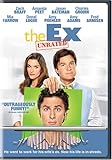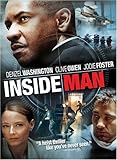From Men’s Health:
Mr. Kentucky is 11,300 miles away from home, lying in a hospital bed, and his right side is paralyzed. His massive, chiseled muscles—the ones that won Devin Dearth the state bodybuilding title—aren’t their former size, but he still bulges at the seams. Nurses at the Tianjin University of Traditional Chinese Medicine in Tianjin, China, surround him and then part as his new doctor enters the room. The doctor, taller than everyone else, struts to the side of the bed and sticks his hand out for Devin to shake. Try as he can, Mr. Kentucky just can’t move his right hand.
Then the doctor begins to insert needles into Devin. Acupuncture to stimulate his paralyzed nerves, yes, but of a different sort: these needles are wider than any you’d find in the United States. More effective, says the doctor. He places them everywhere into Devin: his legs, arms, head, tongue, eyelids; nothing is left unpunctured. The needles will remain in him for 20 minutes, but in the meantime, the doctor asks Devin to move the frozen extremities on his right side.
It starts with his leg. The same leg that had squatted millions of pounds over the course of his 40-years lay flat and trembling. But then Devin slowly lifts it off of the bed. He hasn’t moved like that for months. And then his right arm, the one that had failed him just 15-minutes before, moves.
A Brain Bleed Changes Everything
Three years ago Devin was the Mr. Kentucky. A champion body builder. Arguably the hardest working person in the Blue Grass State. He hit the gym at 4 o’clock in the morning, every morning, then spent 8 hours a day working his six-figure job, afterward returning home to be with his wife and three children.But one day while lifting weights—pop!—it all changed. His brain stem—the area that acts as the on and off ramp for all of the nerves in the human brain—bled; a rare occurrence with serious consequence. A small leak, really. But when that area of your brain springs event he smallest leak, 95% of the time it kills you. Devin Dearth isn’t a 95 percenter.
After weeks in the intensive care unit at a hospital in Kentucky and 3 months of in-hospital therapy, Devin was sent home with a paralyzed right side, wheelchair bound, drooling, and unable to walk or communicate effectively. His insurance had run out, and his family was struggling to pay for the at-home therapy that he required.
Devin’s mind was there, but his body was a prison. He wasn’t improving with the at-home therapy, and he seemed relegated to a paralyzed, cut-off existence for the rest of his life. Until his brother, a filmmaker and bodybuilder, stumbled upon the story of a woman who had also suffered from a brain bleed, and had then gone to China to undergo a 3-month regimen of traditional Chinese medicine and physical therapy. It worked for her, and it was also 1/5th of the cost of just one month of his at-home therapy.
With Progress Stalled, Devin Looks Overseas for Treatment
When his brother brought up the treatment, Devin’s family members were skeptical—China? Seriously, China? But for Devin, China was an escape—an opportunity where none existed.Every day the Chinese doctors and nurses put Devin through a brutal regimen of healing. They’d load him head to toe with needles. Afterward they’d place fire-cups—an ancient procedure that is said to increase blood flow and promote healing—all over him. Then they’d give him physical therapy that wasn’t so different from the kind he’d receive at home. And all the while, Devin undertook his rehabilitation like he took on everything else: he did it to the best of his ability, better than anyone had seen before.
9,000 needles and 12 weeks later, Devin left China. Where he’d rolled into the hospital in a wheelchair, more or less incapacitated, he walked boldly out with the help of his brother. He’d made immense gains during his time: his right side was no longer totally paralyzed, and he was able to speak in understandable, full sentences. He was on the right track.
Today: Optimistic, Back at the Gym, and Dedicated as Ever
And he still is. Three years since he left China, Devin still speaks in a slurred tone, and he still needs help to walk. But he can walk, and he can speak, and his cheerful, optimistic personality is back—a feat that wouldn’t have occurred had he not dedicated himself so fully to his recovery.Devin is featured in the documentary 9,000 Needles, which will be released this October.


